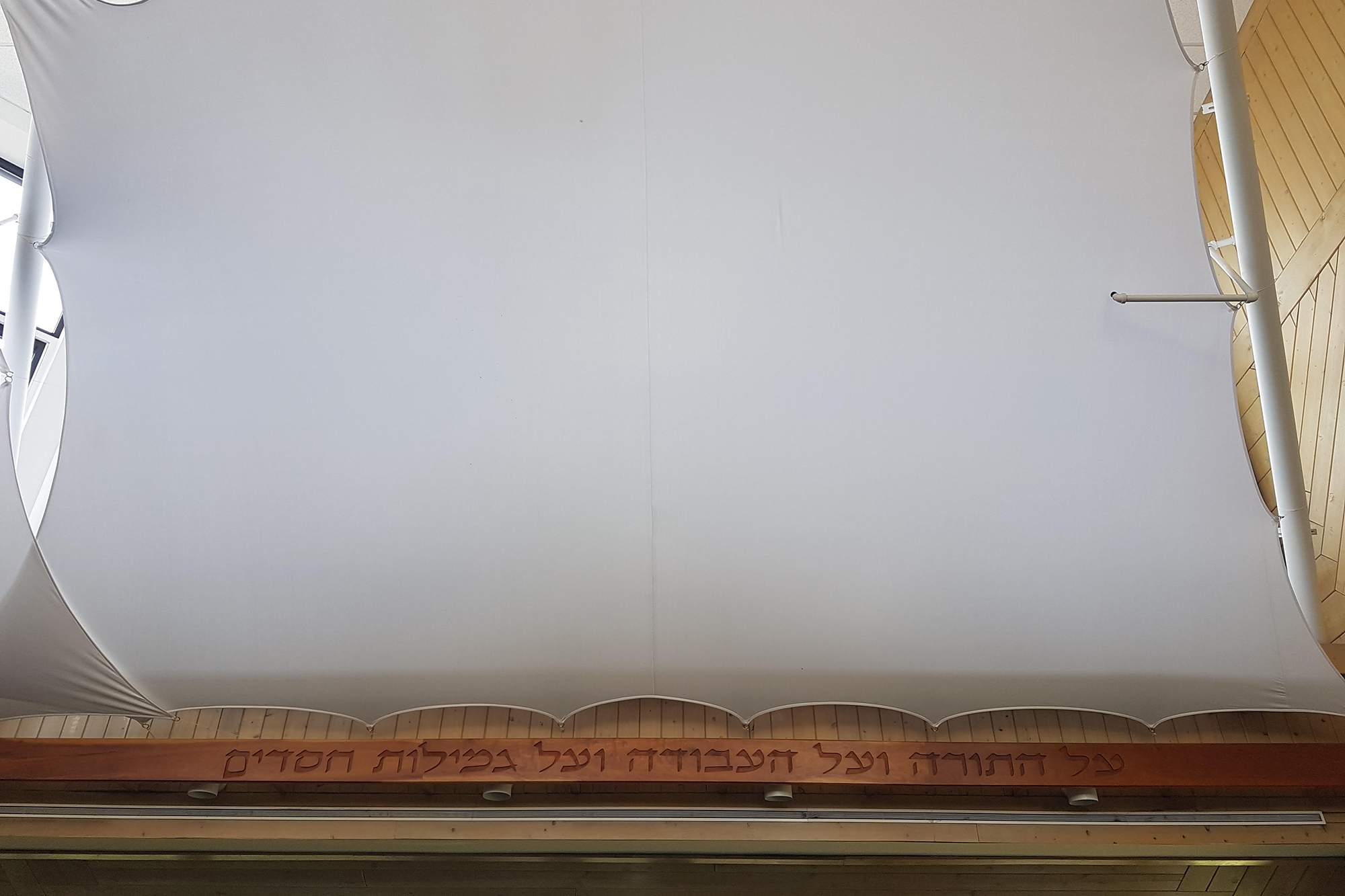High Holidays 5784 – Adat Shalom High Holydays – The Ten-Day Self-Improvement Journey
(5784/2023)
designed by Rabbi Sid
-
- Malchuyot – Sovereignty of “God”
- Kavanah: p. 628 in Machzor. Ira Eisenstein: On Goodness
- Question: Rabbi Eisenstein’s reading associates “God” with the characteristics of a “good” life and, by
extension, a “good” society. The rabbis of our tradition enumerate may attributes to God like truth, justice
and compassion, and Jews are commanded to emulate these attributes in their own lives.
- Do you resonate with this way of understanding “God”?
- Do you have some practice in your own life in which you think about how well your life is aligned with
these Godly values?
- Our society and our world are very far from this Godly ideal. Does this lead you to despair or does this
motivate you to be more pro-active to fix the broken parts of the world we live in?
- Response: Ari Levin
-
- Zichronot – Memory and Remembering
- Kavanah: p. 648 in Machzor. Abraham Joshua Heschel: “Remembering”
- Question: Rabbi Heschel’s selection suggests that in Judaism, “remembering” is more important than
believing. This distinguishes Judaism from many other religions that focus on “belief in…”.
- What from the history of the Jewish people and the heritage of Judaism is most important for you to remember in order to live a life of meaning?
- Are there people whose life and role model inspire you to live a better life? They might be teachers, or famous people or a parent or an ancestor. Name them and raise up how they inspire you.
- Response: Cate Whiting
-
- Shofrot – Redemption: A Vision for Self-Improvement
- Kavanah: “We Wait Too Long” (over)
- Question: This selection reminds of the gap between the kind of person we aspire to be and how we often fall short of that ideal. That does not make us a bad person. It is human nature. The High Holyday season and liturgy
is designed to make us conscious of that gap so that, in the coming year, we can improve, even if only a little bit.
- Which one of the eight paragraphs of the reading speak to you most powerfully?
- Sometimes, just giving voice to how you want to change for the better in the coming year is the most important first step to making that happen. We are asking every Adat Shalom member to reach out to another member to form a learning chavruta (study buddy). Choose one paragraph from the reading that will be your “self-improvement” homework. Exchange contact information and commit to meet at least once in the next 10 days, leading up to Yom Kippur. If the partnership clicks, consider meeting periodically for the rest of the year.
- Response: Matt Biel
If you need help finding a study partner, contact Loren Amdursky at ASchevruta@gmail.com.
Please provide your name, cellphone and email.
We Wait Too Long
We often wait too long to find our way back to the synagogue, to work at the self-renewal of which these holy days remind us. While we wait our lives become progressively depleted of spiritual content. The estrangement between us and our heritage grows larger and more painful.
We wait too long to become more deeply involved in Jewish observance and Jewish study. While we wait the time for the harvest comes and we haven’t even planted.
We wait too long to do what must be done today, in a world which gives us only one day at a time, without any assurance of tomorrow. We frequently lament that our days are so few; and yet, we procrastinate as though we had an endless supply of time.
We wait too long to show kindness. And often we thereby lose the opportunity. How many lines of thanks or encouragement are waiting for us to be written? How many words of solace are waiting for us to be spoken?
We wait too long to be charitable. Too much of our giving is delayed until much of the need has passed and the joy of giving has been largely diminished.
We wait too long to speak the words of forgiveness which should be spoken, to set aside the hatreds that should be banished.
We wait too long to discipline ourselves and to take charge of our lives. We feed ourselves the vain delusion that it will be easier to uproot tomorrow the debasing habits which we permit to tyrannize over us today, whose command over us grows more deeply entrenched each day they remain in power.
We wait too long to be parents to our children – forgetting how brief is the time during which they are children, how swiftly life urges them on and away.
We wait too long to read the books that are waiting to be read, to see the beauty which is here to be seen, to hear the music which is here to be heard, to seek the repentance which is within reach, to utter the prayers which are waiting to cross our lips, to perform the duties waiting to be discharged, to show the love that may no longer be needed tomorrow.
We wait too long in the wings, when life has a part for us to play on stage.
Our prayer book reminds us that God is waiting – waiting for us to stop waiting, and to proceed with all the haste to begin to do now, all the things for which this day was made.

